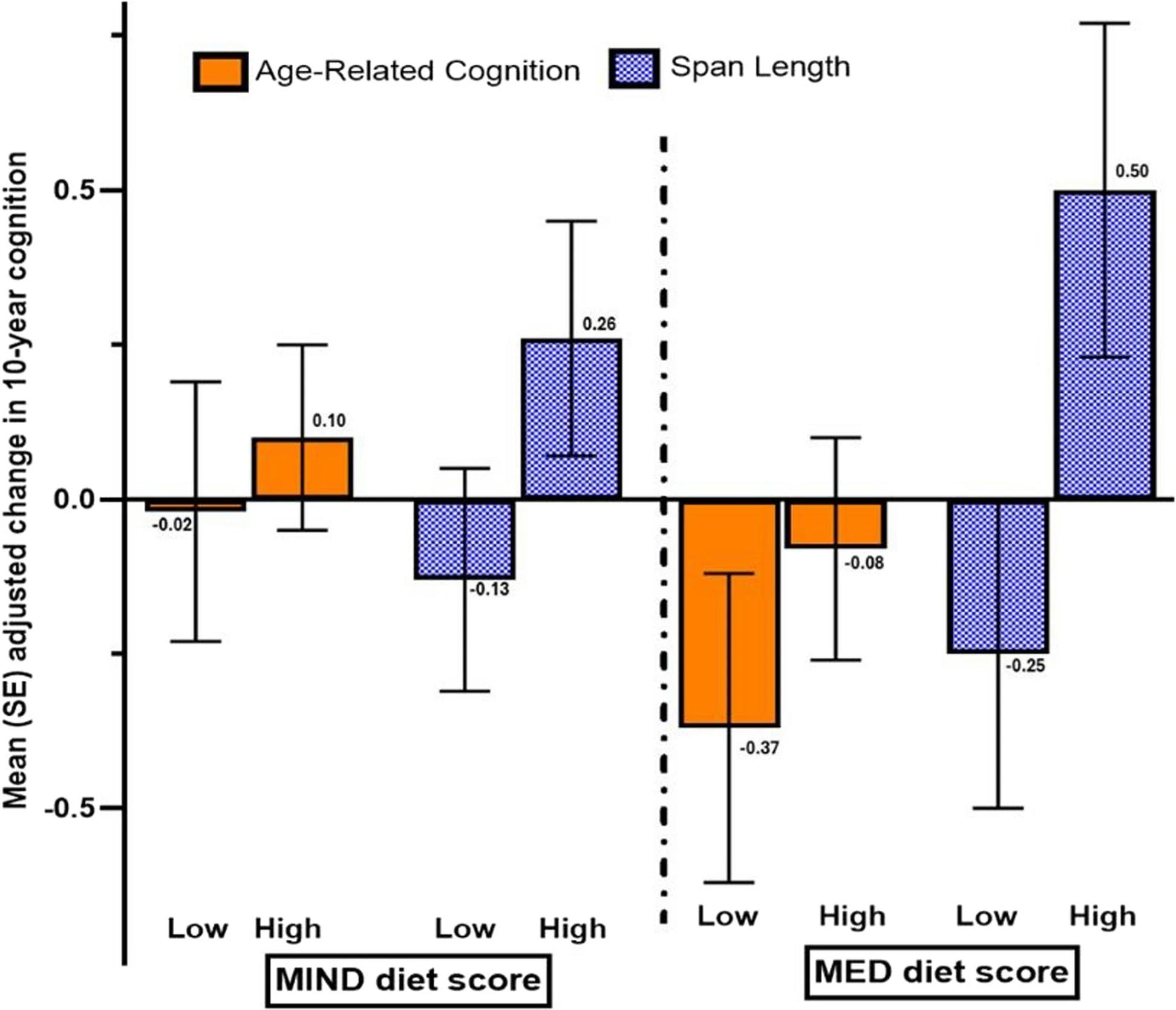Age-related cognitive decline is a public health concern as it can affect morbidity and mortality. Although most individuals experience cognitive decline in midlife, the rate of cognitive decline can significantly vary between individuals depending on their cardiovascular health and lifestyle behaviors. A faster-than-usual rate of cognitive decline with age can be a risk factor for Alzheimer’s disease.
Nutrient-rich dietary patterns, such as the Mediterranean (MED) and the Mediterranean-dietary approaches to stop hypertension intervention for neurodegenerative delay (MIND) diets, are known to have neuroprotective and cognition-enhancing abilities. In this context, evidence indicates that the MED diet can improve cognitive functions by positively influencing the gut microbiota.
In this study, scientists have investigated the impact of MED and MIND diets on cognitive function and 10-year change in cognitive performance in cognitively healthy female twins.
Study design
The study analyzed data obtained from the UK Adult Twin Registry that enrolled healthy female twins between 1992 and 2004. A total of 509 female twins who had complete baseline data on diet and cognitive performance between 1998 and 2000 were included in the analysis. Of these twins, 34% were monozygotic (genetically identical) and 66% were dizygotic (50% identical genes).
The baseline dietary intake was assessed using a food frequency questionnaire. The dietary intake data was used to calculate diet scores for the MED and MIND dietary patterns. A higher dietary score is indicative of higher adherence to the respective diets.
The participants' cognitive performance was assessed at baseline and after ten years (2008 – 2010). Six types of cognitive functions were tested, including reaction speed, spatial working memory, episodic memory, visual episodic memory, decision time, and visuospatial working memory.
Fecal samples were collected from the participants at the 10-year follow-up to analyze gut microbiota.
 Change in adjusted mean (SE). Age-related cognition and spatial span length over 10 years in MZ twins discordant for MIND and MED diet score
Change in adjusted mean (SE). Age-related cognition and spatial span length over 10 years in MZ twins discordant for MIND and MED diet score
Important observations
The assessment of the impact of dietary patterns on baseline cognitive performance revealed no significant association between MED diet scores and cognitive test scores. For the MIND diet, each 1-point increase in diet score was found to be associated with faster reaction time and better visual episodic memory after adjusting for demographic, health, and lifestyle confounding factors.
The assessment of the impact of dietary patterns on cognitive performance at a 10-year follow-up revealed that increasing adherence to the MED or MIND diet is associated with improved episodic memory.
The assessment of the impact of dietary patterns on 10-year change in cognitive performance in the discordant monozygotic twin pairs revealed that the monozygotic twin with a high diet score has less decline in global cognition in general. However, this difference was not statistically significant.
Within each monozygotic pair, the twin with high MED or MIND diet scores observed greater preservation of visuospatial working memory. This observation was significant for the MED diet. No significant impact of MED or MIND diet on 10-year change in other cognitive performances was observed in discordant monozygotic twins.
Regarding the relationship between dietary patterns and gut microbiota, the findings revealed that high adherence to the MIND diet at baseline is associated with a higher abundance of Ruminococcaceae UCG-010 (short-chain fatty acid-producing bacteria) and a lower abundance of Dorea at 10-year follow-up. This association became non-significant after adjusting for dietary fiber intake.
Further analysis revealed that a higher abundance of Ruminococcaceae UCG-010 is associated with a lower decline in global cognition and improved spatial working memory at the 10-year follow-up.
Study significance
The study finds that both MED and MIND diets could effectively preserve episodic and visuospatial working memory in midlife. These neuroprotective effects could be attributed to high dietary fiber content and increased abundance of short-chain fatty acid-producing bacteria in the gut.
As mentioned by the scientists, the possible influence of unidentified genetic factors on the study outcomes in the entire study population cannot be ruled out, as the same pattern of cognitive improvement has not been found in monozygotic co-twins.
Future studies should include longer follow-ups with repeated cognitive assessments to understand the impact of diet on cognitive performance in older age.